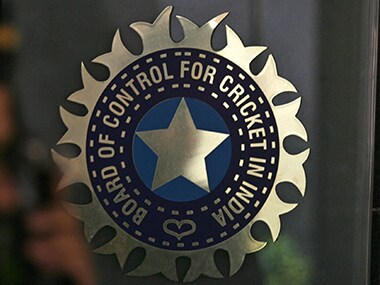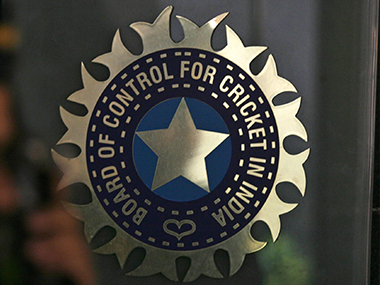A bank guarantee is both fail-proof and foolproof. Every creditor knows this and plumps for it. The Supreme Court has reiterated any number of times that a bank standing guarantee cannot demur except in cases of frauds. So much so, it is the most preferred form of security even though ironically the accounting standards require debts backed by bank guarantees to be presented as unsecured in the absence of physical securities.[caption id=“attachment_2463644” align=“alignleft” width=“380”]  The BCCI logo. Reuters[/caption] Be that as it may, in 2012 PepsiCo had bid Rs 396 crore for five years starting 2013 for IPL title rights. It seems the mode of payment agreed upon was revolving bank guarantee for Rs 78.60 crore. A revolving bank guarantee extends itself till the stipulated number of years for which much the guarantee was given is over. If the guaranteed amount is multiplied by five, it works out to Rs 393 crore, thus leaving BCCI uncovered, so to speak, only to the tune of Rs 3 crore which is not a big deal given the fact that a huge element of bounty or largesse is always built into sponsorship rights. After all, the second highest bidder, Airtel, had bid only Rs 316 crore. For the IPL seasons 2016 and 2017, the BCCI has the following options: • Smugly present the guarantee to the bank which will have to cough up Rs 78.60 crore in these two years; • Invite fresh bids and resort to bank guarantee furnished by PepsiCo only for the shortfall. Both the courses would be win-win for the BCCI. The second course is more likely though. BCCI would not like to leave a void in sponsorship. With its reputation in tatters, it may not get a mind-boggling amount but let us say for the five year period 2016 to 2020, it gets the highest bid of Rs 100 crore that translates into an annual figure of Rs 20 crore. BCCI would ask for Rs 58.60 crore for the years 2016 and 2017 from the bank that extended the guarantee at the request of PepsiCo. In the unlikely event of the fresh highest bid being say Rs 400 crore, PepsiCo and its guaranteeing bank will get a reprieve. The bank giving the guarantee has recourse to PepsiCo. In other words, it can ask for reimbursement from PepsiCo for what it has coughed up. And to be sure, it would have taken tangible securities whose worth would ultimately seal the fate of the bank. PepsiCo has pleaded breach of contract by the BCCI as the reason for its withdrawal midway through. The bank too can latch on to this defence because a guarantor has all the rights of the person for whom it has extended the guarantee. The alleged breach consists in BCCI not keeping IPL’s reputation squeaky clean. A sponsor pays a fortune so he can ride piggyback on the reputation of the brand. But this has always been a grey area. The court will certainly ask why Pepsi sponsored when there were strong rumors backed by ED investigations into money laundering charges against several team owners. BCCI, on its part, would make full use of all the escape routes like it having done its best, it having no control over bookies and betters etc. In the event, it may well succeed in turning the tables on PepsiCo to sustain its claim of enforcing the bank guarantee for the remaining two years to the extent of shortfall. BCCI has an easy job before the court whereas PepsiCo’s seems to be a lost cause. In any case, in a cricket crazed nation finding another sponsor may not be all that difficult.
BCCI may well succeed in turning the tables on PepsiCo to sustain its claim of enforcing the bank guarantee for the remaining two years.
Advertisement
End of Article


)

)
)
)
)
)
)
)
)



